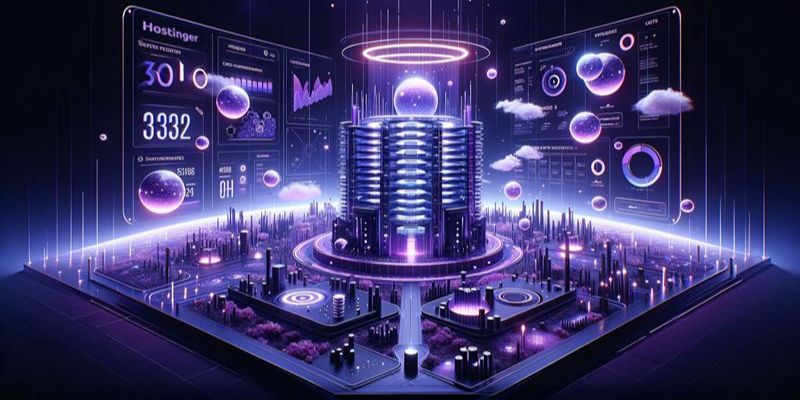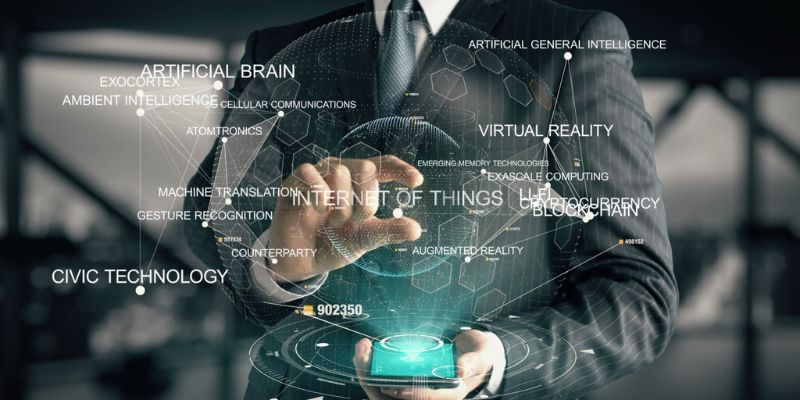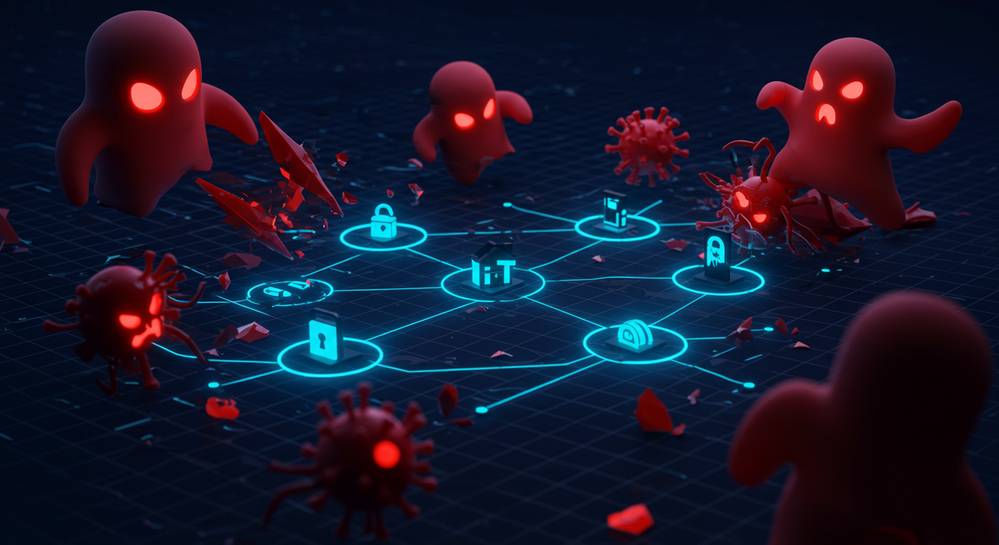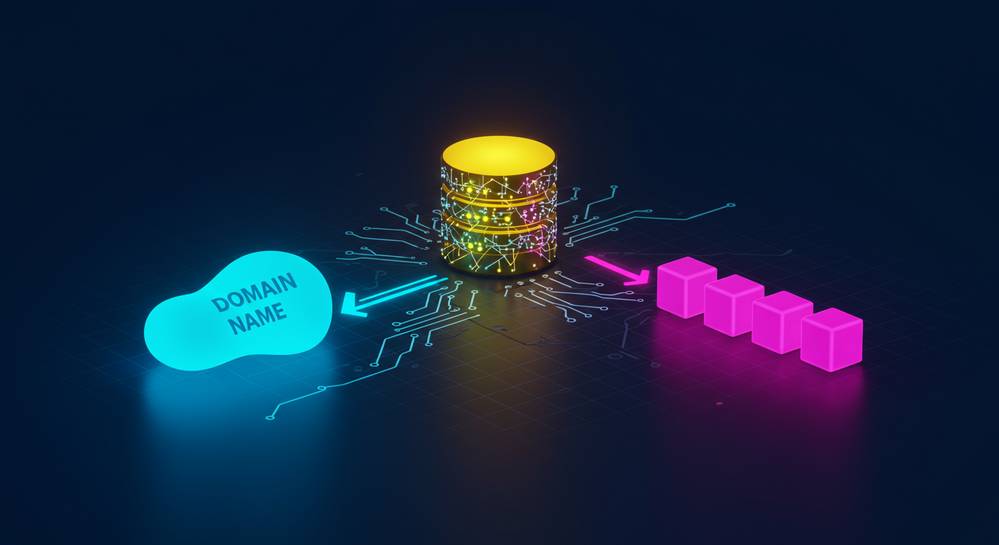What will the internet look like in the future? Picture this: you wake up, and the web is not just on your screens, it’s woven into every part of your life. The distant future of the internet tickles the brain, sure – but it’s more than flying cars and holograms. We’re edging toward a digital landscape packed with blazing speeds, smarter tech, and deeper connections. We’re peeling back the curtain to reveal a realm where Web 3.0 redefines how we interact with the digital world, and quantum computing pushes what’s possible. Get ready to dive into the depths of the internet’s next leap and see how it will expand the horizons of our digital lives. Strap in; it’s time to decode the evolution that will reshape everything.
The Next Frontier: Web 3.0 and Beyond
Exploring Web 3.0 Features and the Decentralized Web
The web is changing fast, and Web 3.0 is its future. What’s that, you ask? Web 3.0 makes the internet smart, where machines understand data like humans. This means better, more personal web experiences for you and me. We’ll search less and find more of what we like and need.
Besides, we’re looking at a decentralized web where users have control, not big tech companies. Imagine logging in without passwords and being sure your data is safe. That’s blockchain technology at work, making things secure and fair for everyone. It also means you could own part of the internet! Sounds cool, right?
Quantum Computing: Accelerating Internet Capacities and User Experience
Now, let’s rev up the engine with quantum computing. This isn’t sci-fi; it’s the real deal. Quantum computers are lightning fast. They can solve problems in seconds that would take regular computers years. What does this mean for the web? Well, Web 3.0 combined with quantum computing will load websites and videos at crazy speeds. It’ll also make games more fun with unreal graphics.
This super speed helps with more serious stuff too. It makes sure the doctors get medical records fast to save lives. It also keeps the internet safe by breaking codes that hackers use to steal data.
Quantum computing will not only make things faster but also smarter. Your phone will learn about you and help in ways we can only dream of now. And guess what? It will also create new jobs and ways to learn.
Together, these technologies will make the internet a place where we all belong and can use it in amazing new ways. It’s like building a whole new digital world that’s safe, fast, and full of possibilities for fun and work. Hold tight, because the future of the internet is just around the corner, and it’s going to be awesome!

Connectivity Redefined: The High-Speed Race
5G and 6G: Gateways to Unprecedented Internet Speeds
Imagine downloading a movie in seconds. That’s 5G for you. It’s here and it’s fast. The jump from 4G to 5G is like ditching a horse for a rocket. It’s a big deal for everyone who loves being online. With 5G, videos load in a blink, and video calls are crystal clear. No more freezing faces on screen.
Now, let’s talk 6G. It’s still in the lab, but it’s coming. Industry wizards say it will be a game-changer. Think of smart cars talking to each other to avoid crashes. Or remote surgery with zero delays. 6G could make these real. It’s all about having a web that moves at lightning speed, everywhere, all the time.
Bridging the Gap: Global Internet Accessibility and the Digital Divide
Not everyone has good internet, though. Many places and people are stuck in a slow zone. This is the digital divide. It’s like having some people with no shoes while others have jet boots. We can’t have that. The internet is a tool we all need to learn, work, and share. We need to fix this split.
How? Think big! Space-based web could help. Companies are launching internet satellites. The goal is to beam down web access even to far-off spots. This way, kids in remote villages could learn from the best teachers in the world. Doctors in small towns could learn from top surgeons. Everyone gets a shot at the good stuff the web offers.
But it’s not just about getting online. It’s also about what you can do there. The future web will be tailored for you. It will know what you like. It’ll be like your best pal, showing you stuff that makes you smile. Your online time will be all about what matters to you.
In this fast-traveling web world, we must keep our data safe. That’s where new tech steps in. AI will guard our online doors. It will learn to spot bad guys and kick them out before they can blink. This way, you can enjoy the turbo web without worry.
So, the future? It’s bright, and it’s fast. With 5G and, soon, 6G, expect the web to be as common as air, everywhere for everyone. And it won’t be just about speed. It’ll be smart. It will know you and make your online life a breeze. But, let’s not leave anyone behind. We’ll work to close the digital split and welcome everyone to this amazing web future. Let’s get everyone in the race, because it’s a race we can all win, together.

Smart Technologies and Seamless Integration
Ubiquitous Computing Meets the Internet of Things (IoT)
Imagine your morning alarm goes off, and your coffee starts brewing itself. Your lights gently come on as sensors notice you stirring. This is ubiquitous computing in action. Mix it with the Internet of Things (IoT), and daily life becomes a breeze. It’s like having a helpful buddy in every device you own. These buddies talk to each other to make your day easy.
IoT is a big web of devices talking to one another. From fridges to watches, they share information over the internet. This chat helps devices work together to serve you better. But why should you care? Because IoT makes things safe, saves you time, and even keeps your wallet happy.
Take smart homes. Here, the IoT could spot a water leak and turn off the supply to prevent damage. In health, a watch can send your heart rate to doctors in real-time. Fancy, huh? But this is just the start. Cities, whole countries will get smarter too. Traffic lights will chat with cars, making jams rare. This is not a far-off dream; it’s becoming real right now.
Future online connectivity with IoT means less hassle for you. Your life will run smoother than ever. This is the magic of IoT. New web 3.0 features will be the next step. They’ll make using the internet more personal and secure for you.
From Social Media to Cities: The Rise of ER (Extended Reality)
Next up is Extended Reality, or ER for short. This includes virtual reality, augmented reality, and mixed reality. ER will change how you chat with friends and see the world. It sounds like sci-fi, but it’s closer than you think.
Social media will get a makeover. You could walk around a virtual shop with a buddy, or go to a concert in your living room. With ER, you can high-five a pal across the globe. Schools could take kids on field trips to Mars. Basically, fun and learning will have no limits.
ER is not just for play. It will help cities run better too. Picture engineers ‘seeing’ through roads to fix pipes without digging. Cops and firefighters could train for real-life dangers in a safe virtual world. These experiences feel real, but there’s no risk. That’s the power ER will bring.
Think of ER as your ticket to anywhere or anywhen. Want to go back in time or see the future? ER could take you there. This stuff helps you learn, work, and play in ways we just dream about now.
So, what does all this mean? Your online life will be full of fun, new ways to connect and experience the world. Big words aside, the internet’s future is looking bright. It’s all about helping you, keeping you safe, and throwing in some ‘wow’ moments for good measure.

Ethical, Secure, and Personalized: Defining the Future of Internet
The Balance of AI: Enhancing User Experience While Protecting Privacy
Imagine a friend who knows you super well. They make your online life easy and fun. That’s like AI in the future internet. AI is smart tech that acts like a human brain. It makes things faster and less of a hassle. Kids might go “Wow! How did it do that?” when the internet seems to read their minds! Because AI learns what we like, we find cool stuff online in a snap.
But hold up! AI knowing a lot about us can also be a bit scary. That’s why we need to keep our info safe and sound. We can enjoy all the smart help without worry. Think of it like a superhero. It’s got the power to protect our secrets. We want AI to be our buddy, not a snoop.
Future AI will help find stuff we lost and remind us of important things. It will also help us talk to people from all over the world. Even if we don’t speak the same language. How wild is that? But to do this, we need good rules. We have to make sure that AI plays fair.
The Blueprint for Next-Generation Internet Security and Digital Ethics
Okay, you know when you build something? You start with a plan, right? That’s what we need for keeping the internet safe as it grows. As we get new tech like really fast internet and smart cities, we must plan. We need top-notch internet security that’s like a strong castle. It keeps the bad guys out. This isn’t just for big-time gamers or tech wizards. It’s for everyone.
So, how do we do it? We start by making better locks, like passwords that are tough to crack. But that’s not all. We’ll have new ways to check if someone is really who they say they are. Plus, everyone gets to learn about keeping safe online. It’s like putting on armor before a big adventure. Super cool, right?
Then there’s digital ethics. That’s a fancy way of saying doing the right thing online. It’s all about being kind and fair to everyone. Like not snooping in someone’s diary. We need rules that help us do the right thing. So everyone can have fun and learn on the internet.
When we mix together AI, safety, and doing the right thing, we get an awesome place. A place where we can explore, play, and learn without getting into trouble. Future internet is like a playground that’s big, exciting, and safe for all of us to enjoy. And we can all help make it even better!
We’ve journeyed through the thrilling changes in the internet’s next chapter. From the new decentralized Web 3.0 to mind-blowing quantum computing, we are on the brink of seeing the internet grow beyond our wildest thoughts. Then there’s the speed leap with 5G and 6G, not to mention efforts to bring everyone online, closing the digital gap. Imagine a world where everything is connected, where your fridge chats with your phone and virtual worlds are as common as coffee shops. That’s the promise of IoT and extended reality. But with great power comes great need for responsibility. We’re crafting a net that not only knows you but safeguards your secrets. It’s a tall order, ensuring that AI respects our privacy and that security keeps pace with innovation. But I believe we’re up to the task. End note? We’re not just using the internet, we’re weaving it into who we are – safely, swiftly, smarter. It’s an exciting time to be alive and plugged in to the future.
Q&A :
Sure! Here is an outline for frequently asked questions about “What will the Internet look like in the future?” written in Markdown and optimized for SEO.
#### How is the Internet expected to evolve in the next decade?
With advancements in technology and increasing global connectivity, the Internet is anticipated to become more integrated into our daily lives. Experts predict a rise in Internet speeds, more ubiquitous and seamless connectivity due to 5G and subsequent technologies, greater use of artificial intelligence, and more immersive digital experiences through technologies like virtual reality and augmented reality.
#### What role will artificial intelligence play in the future of the Internet?
Artificial intelligence (AI) is set to revolutionize the Internet by personalizing user experiences, increasing automation, and facilitating real-time data analysis. AI-powered virtual assistants and smart algorithms will likely become more prominent, providing more intuitive interactions and efficiency in processing and managing information.
#### Are there emerging technologies that will shape the future of the internet?
Yes, technologies such as Quantum Computing, 5G, Edge Computing, and the Internet of Things (IoT) are expected to significantly impact the future Internet landscape. These technologies will lead to a faster, more secure, decentralized, and device-interconnected Internet, paving the way for innovations that could transform various industries.
#### How will Internet accessibility change in the future?
The future Internet aims to be more accessible to people worldwide, including those in remote or underprivileged areas. Initiatives like satellite Internet and Loon's balloon-powered connectivity project seek to bridge the digital divide. Also, web content is likely to become more accessible to individuals with disabilities through improved design and regulatory standards.
#### What security and privacy concerns might the future Internet present?
As the Internet grows and evolves, security and privacy concerns are likely to become more complex. With an increase in connected devices and reliance on digital data, there will be an increased risk of cyberattacks and data breaches. Future Internet developments will need to incorporate strong cybersecurity measures and privacy protections, potentially including advances in encryption and user authentication methods.
Each question is designed to address common queries related to the future of the Internet, incorporating relevant keywords and potential search intents to help improve the content’s visibility and engagement on search engines.



